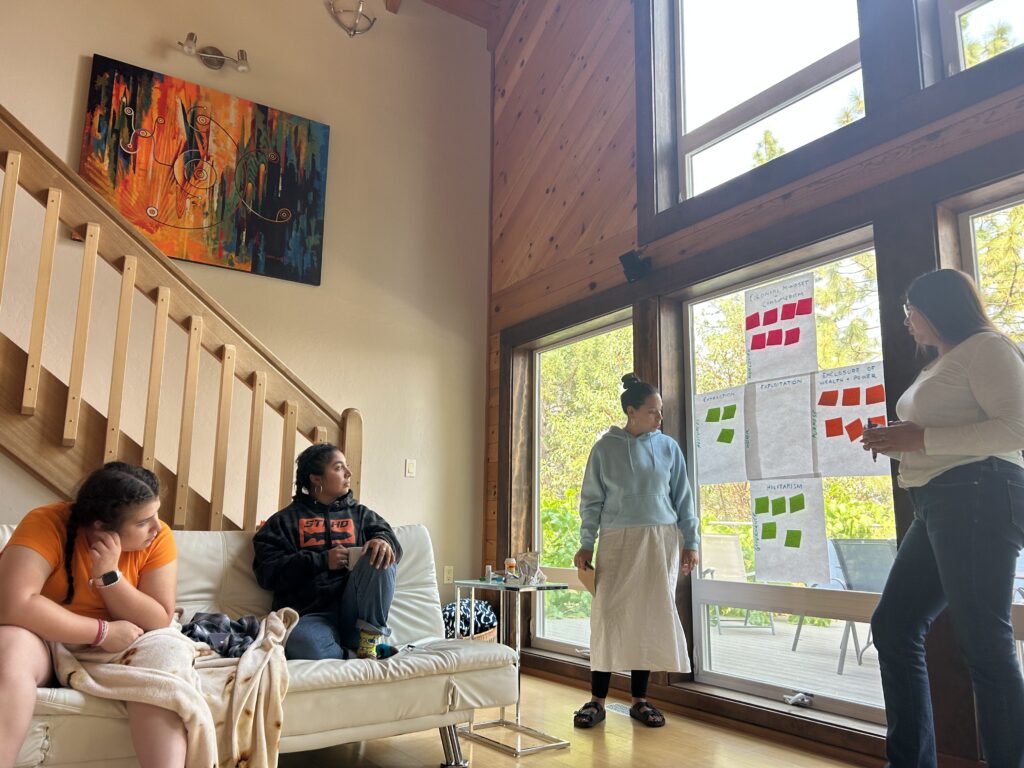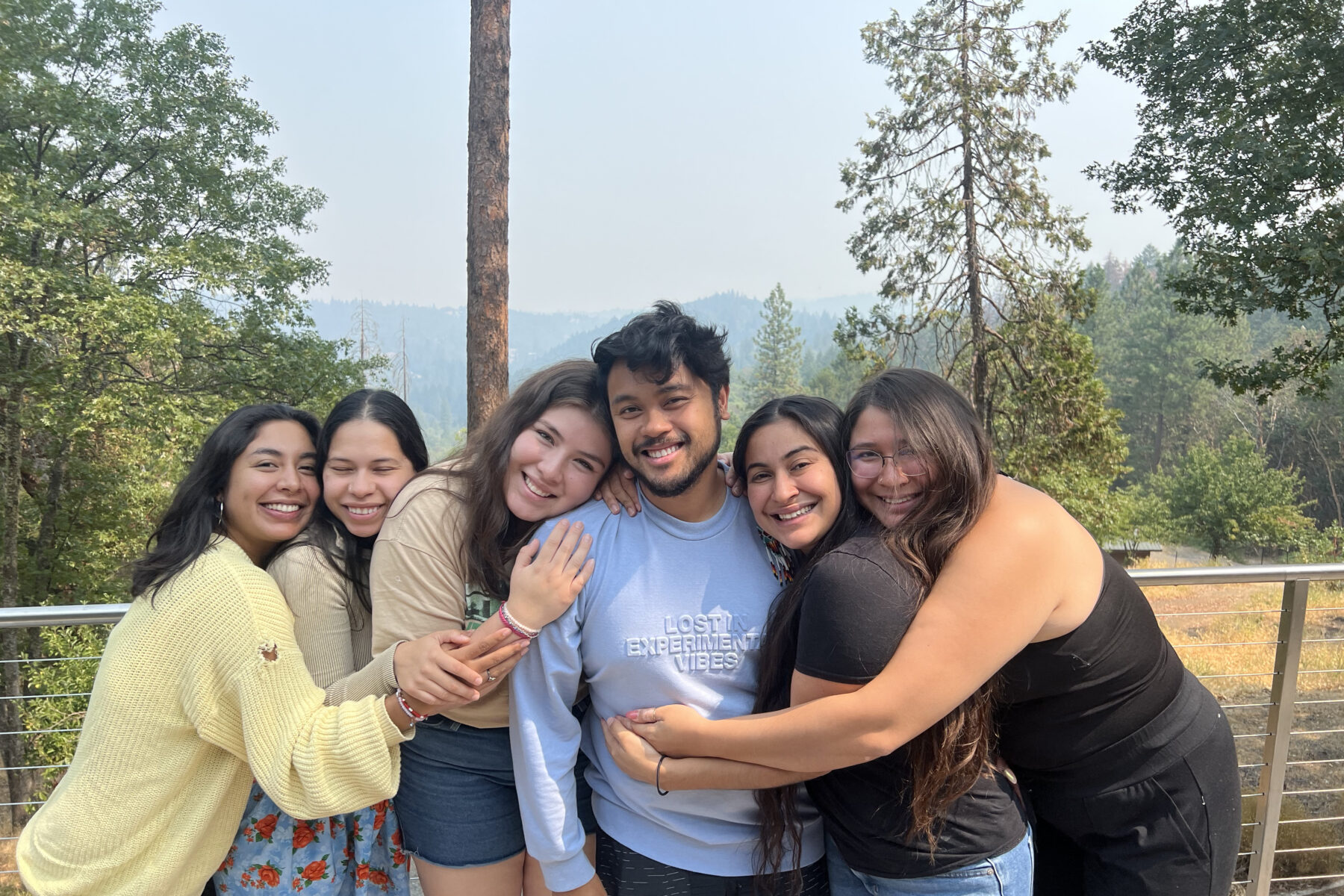Innovations in Disaster Response After the Almeda Fire
Wildfires across the West Coast have become more severe in the ongoing climate crisis. Half of California’s 20 deadliest wildfires ever recorded occurred in the last two decades and among these, five of the six largest wildfires occurred throughout the 2020 wildfire season alone. I was in Oakland at the time, living under prolonged exposure to wildfire smoke. The smoke caused me to develop respiratory issues, resulting in a recurring cough and, for a while, the loss of my singing voice— something that I never imagined could happen due to the changing climate.
I was not alone in navigating these extremes. Today, a look back at the 2020 wildfires provides insight on how we can better prepare ourselves in the era of climate crises. The story of how Coalición Fortaleza came to buy back two neighborhoods on the behalf of displaced communities in Southern Oregon exemplifies inspiring, community-led innovations in disaster-response work. We had a chance to sit down and talk with Niria Alicia, co-founder and board co-chair, and Celinés Garcia, Community Wealth Building Organizer, of Coalición Fortaleza to share more about their work.
The following interview has been edited for clarity.
Narrative Initiative:
Tell us the origin story of Coalición Fortaleza– how did it come about?
NIRIA: Coalición Fortaleza literally sprouted up from the ashes of the Almeda Fire in 2020. On September 8, thousands of us woke up to smoke, chaos, and confusion. We heard that there was a fire burning north of Ashland and that it was being taken care of, but we kept looking at the sky seeing a giant cloud of thick gray smoke getting thicker and thicker and moving closer to us. At 11 am I called my mom and said, “We have to leave. We have to evacuate.” By 11 pm, the Almeda fire had scorched over 2,800 structures in the cities of Talent, Phoenix, and Medford, Oregon. Basically within 12 hours, my community saw our neighborhoods consumed by fire. We lost the majority of our low-income BIPOC neighborhoods and 18 mobile home villages. It’s hard for me to remember that this was in the middle of a pandemic, at the point where there was still so much we didn’t understand about COVID. There was no vaccine. A lot of folks had just lost their jobs. In the peak of summer when it reached triple digit weather, it was too dangerous for farmworkers to work and those wages were lost.
Our community was already experiencing so many different layers of crisis; losing our homes was the last straw. Even then, you still have to figure out, “How do we make something from nothing again?” I remember the look on some community members’ faces, who are like, “I’ve already crossed the border and started from scratch, and I’m back here again” – 10, 30, 40 years later. Some families experienced this level of loss across multiple generations– grandparents, parents, and children losing everything overnight. It was really tragic. And it’s still pretty tragic.
But out of this tragedy, Coalición Fortaleza was born. We didn’t have a name then— it was more like a spirit and an effort. About 92 of us found ourselves in a Northwest Seasonal Workers Association member meeting in a gym a month later, growing frustrated and impatient with how slow FEMA and other government agencies were moving to our needs. As a mixed status community, we started trying to figure out who was going to qualify for FEMA aid and who was not. Through conversation with our elder Don Leonso and our community members, this idea started to develop: what if we pooled together the money we had and bought back our neighborhoods? We got serious and did the math and realized we could do it. We could at least buy back two neighborhoods that had burned down.
Narrative Initiative:
What are the ongoing relief efforts that have been happening since the Almeda Fires?
NIRIA: Well, before we became a nonprofit, we were tasked by the elders that night in the circle to look up how to buy our neighborhoods back. We ended up on Google, figuring out how to do that. We started looking into residential communities in southern Oregon and we saw CASA of Oregon had been doing this work for 30 years. They’ve been one of our biggest partners from the beginning.
We took on nonprofit status to be able to further our work. With CASA of Oregon as the nonprofit developer, we were able to successfully purchase Talent Mobile Estates and Summit Gardens back.
CELINÉS: In my role as a Community Wealth Building Organizer, I oversee our Individual Development Account program. This is a savings program in which we work with families to set up a savings goal. Once they meet a certain goal, the program matches their savings. It’s typically a one-to-five match, so for every dollar that they save, the program will give them $5. We’ve been really successful with this program.The first eight people we enrolled have been able to save $1,000 which in return they were able to get $5,000. This means that they now have an emergency savings account of $6,000 which can instantly be applied to any type of emergency that they might have.
Another area of on-going program work has been the collective design process of Talent Mobile Estates’ restoration. We hold a lot of events where people are able to meet with the architects and developers and give their input on things like landscaping, blueprints, etc.
This type of community engagement is a big part of our programming. We work to make sure that people feel like they have not been forgotten, which is how a lot of the community feel just due to being displaced into different areas of Southern Oregon.
The other neighborhood we were able to buy back is Summit Gardens. This housing project is primarily for fire survivors that are farm workers and it’s really exciting because we’re about to have the groundbreaking for that development on September 22. This will include a land blessing to acknowledge our Indigenous communities that tended to these lands long before we started building on them.
There’s a lot more to our programming I haven’t even gotten to. We hold emergency preparedness information sessions. We hold storytelling socials. We organize a vendor market called El Mercadito to further stimulate local economic growth. We also do a lot of work on the backend related to organizational partnerships and collaborations. Coalición Fortaleza is growing in exciting ways.

From left to right: Diana Ramos Alonzo, Organizational Wellbeing Manager, Araceli Jimenez, Cultural Leadership Organizer, Érica Alexia Ledesma, Executive Director, and Celinés Garcia, Community Wealth Building Organizer, working on strategy plans at a staff retreat.
Narrative Initiative:
What do you see as the solutions to supporting communities cope with climate change?
NIRIA: I don’t think we are being real with how imminent climate crises are. Anybody anywhere can find themselves at any moment in a climate emergency. When September 8 happened and the Alameda fires came, we were not ready psychologically, emotionally, spiritually— let alone physically or logistically. Cities were not ready, families were not ready. Roads were not ready. Officials were not ready, nobody was ready to respond. We can’t live like that anymore.
I know that what communities need most to cope with climate change is to prepare.
How do I know this? Because the following summer: a lot of our folks were getting triggered in May, thinking about June coming. We don’t even call it summer anymore. It’s smoke season in the Rogue Valley. In the summer of 2021, we led an emergency and emotional preparedness training in which some of the feedback we got was that this was relieving and supportive to people’s climate anxiety. Preparing and making a plan helps our community manage the anxiety of moving into the next summer.
Another thing that communities need to cope with climate change is for governments and nonprofits to literally put the decision making power in the hands of the community to decide how we are going to allocate resources for our own recovery. For example, when we were in the formal evacuation center, by the third day the number one need was not money, blankets, food or even water. Our highest need at the evacuation center was mental and spiritual health services. Finding different formulas and strategies for decision-making power to be decentralized, and for resources to also be decentralized in moments of climate emergencies is absolutely necessary to save lives and prevent the next disasters.
Narrative Initiative:
Is there anything you’d like to add or share?
NIRIA: You would be surprised how quickly people forget about these tragedies. The Alameda Fire happened three years ago and it has been painful to see a lack of acknowledgement or commemoration. Keeping our attention on these memories is painful and difficult but very important for us. Our memory informs how we organize, what we prioritize, and how we imagine our future. What I think got us through is having faith and being driven by the hope that we have the power to create something better than what we lost. You just have to believe that we will be able to build something better.

